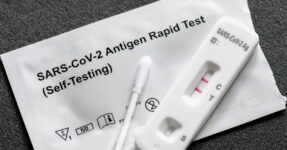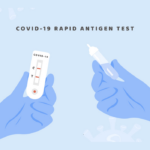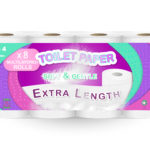Rapid Antigen Tests: Unavailable or Overpriced

The Australian Competition and Consumer Commission (ACCC) is investigating reports of ‘outrageous’ prices being charged for Rapid-Antigen Tests.
Concerningly, the consumer watchdog says it has received as many as 150 reports a day from consumers about excessive pricing of the testing kits, in some cases up to $500 for two tests.
Unconscionable Conduct
Under Consumer Law, suppliers and businesses have a lot of leeway to set their own prices, but it is an offence to make false or misleading statements about the reasons for those prices and, depending on the circumstances, charging excessive prices can be deemed ‘unconscionable conduct.’
Furthermore, an amendment to the Biosecurity Act which came into force at the start of 2022 prohibits a person from reselling, or offering to resell, RAT kits bought at retail level for mark-ups more than 20 percent.
The average price you can expect to pay for a RAT is about $10 per single test, and even this has been criticised as being too expensive. Many health experts are campaigning for tests to be free, or at least sold without GST, to make them more affordable, given that they are now extensively needed for everyday activities.
To date, the Federal Government has only committed to provide free rapid antigen tests to Australians on low incomes.
This is an issue that can be squarely laid at the Federal Government’s feet. Since late last year when the Therapeutic Goods Administration (TGA) approved RATs for use and sale in Australia. This was around the same time as the Federal Government mooted its intention to move away from clinic (PCR) testing to RATs, which can be used anytime.
Free RATs during trials
The NSW District Court requires participants in trials to conduct RATs beforehand, as well as every second day for the duration of the trial. These tests are supplied free-of-charge at court-located clinics, funded by Communities and Justice.
Blame-shifting from Federal to State and back again
Part of the problem for the broader community is that as jurisdictions shift to the new model, supplies of RATs are quickly drying up.
The Federal and State governments have spent the past few weeks blame-shifting the fault for the current shortage, again highlighting one of the biggest problems we’ve had during the pandemic with the Federal Government setting policy, and the States in charge of pandemic management.
Not only has this resulted in duplication and confusion, its meant that there’s no single government entity, department or person ‘where the buck officially stops’.
The RAT kit shortage is similar to the situation we faced in 2020 when there was a critical shortage of PPE equipment.
There was a rise in procurement of PPE on the dark web, and some Australian doctors and nurses were reportedly going to Bunnings to buy their own gear.
It is also eerily similar to the heavily criticised vaccination rollout which took months longer than promised (and still parents are facing shortages of vaccinations suitable for children, and long wait times at overloaded medical clinics.)
Australian-made tests awaiting TGA approval
To add insult to injury, Australian manufacturers of RATs say they are waiting for TGA approval for their products. Two manufacturers say their tests have already been approved and are in use overseas, yet they still need signoff here.
In the meantime, only one of 22 tests approved for use and sale in Australia is actually made here. The rest are being imported from China, the US, Korea, Singapore and Germany.
In the past few days the Federal Government spent $62m to secure RAT kits in an effort to solve the current crisis as quickly as possible. But many think this is ‘too little, too late.’
Lack of foresight and planning
The current shortage has been directly attributed to the dramatic shortage of workers across Australia, affecting industries such as health and hospitals, supply, distribution, transport and hospitality to name a few.
It is also potentially distorting current case numbers. Many public testing centres were shut down in December in preparation for the move to home-based RATs, so they are not as accessible as they once were.
Those remaining centres have long-wait lists for conducting tests, and labs also have delayed times for processing results.
Last week, NSW Premier Domenic Perrottet signed off on a public health order which requires anyone who tests positive with a RAT, to report it via the NSW Services app, and which comes with a $1,000 fine for those who fail to do so.
But, rather obviously, people who are sick, and suspect they may have contracted Covid-19 can’t test themselves if they cannot get hold of a testing kit. If they are feeling very unwell, it’s also unlikely they locate a testing centre and wait in a queue.
It’s just another serious bureaucratic bungle – a lack of strategic planning and foresight which none of our politicians want to be accountable for.
And yet it is one which Australians, who have, on the whole, done everything that has been asked of them throughout the pandemic, and are now paying the price for.







